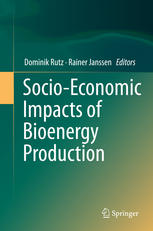

Most ebook files are in PDF format, so you can easily read them using various software such as Foxit Reader or directly on the Google Chrome browser.
Some ebook files are released by publishers in other formats such as .awz, .mobi, .epub, .fb2, etc. You may need to install specific software to read these formats on mobile/PC, such as Calibre.
Please read the tutorial at this link: https://ebookbell.com/faq
We offer FREE conversion to the popular formats you request; however, this may take some time. Therefore, right after payment, please email us, and we will try to provide the service as quickly as possible.
For some exceptional file formats or broken links (if any), please refrain from opening any disputes. Instead, email us first, and we will try to assist within a maximum of 6 hours.
EbookBell Team

4.7
26 reviewsAround the world, many countries are increasing efforts to promote biomass production for industrial uses including biofuels and bio-products such as chemicals and bio-plastic. Against a backdrop of lively public debate on sustainability, bioenergy wields both positive and negative impacts upon a variety of environmental and socio-economic issues. These include property rights, labor conditions, social welfare, economic wealth, poverty reduction and more. This book discusses the issues and impacts of bioenergy, taking into account the local and regional framework under which bioenergy is produced, touching upon educational level, cultural aspects, the history and economies of the producing countries and an array of policies including environmental and social targets.
The book surveys and analyzes global bioenergy production from a number of perspectives. The authors illustrate the complexity of interrelated topics in the bioenergy value chain, ranging from agriculture to conversion processes, as well as from social implications to environmental effects. It goes on to offer insight on future challenges associated with the expected boom of a global bio-based economy, which contributes to the paradigm shift from a fossil-based to a biomass and renewable energy-based economy.
The expert contributors include researchers, investors, policy makers, representatives from NGOs and other stakeholders, from Europe, Africa, Asia and Latin America. Their contributions build upon the results of the Global-Bio-Pact project on “Global Assessment of Biomass and Bio-product Impacts on Socio-economics and Sustainability,” which was supported by the European Commission in its 7th Framework Program for Research and Technological Development, conducted from February 2010 to January 2013.
The book benefits policy makers, scientists and NGO staffers working in the fields of agriculture, forestry, biotechnology and energy.